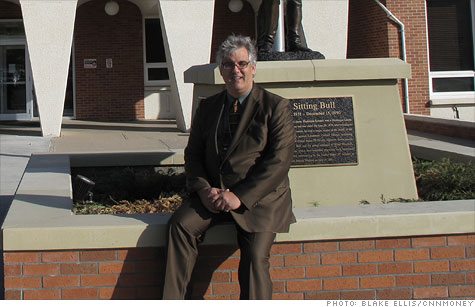"At some point [students] decide, 'Well, college will always be here ... but the oil boom won't,'" says Jim Stout, an English professor at Williston State College in North Dakota.
WILLISTON, N.D. (CNNMoney) -- Jim Stout, an English professor at Williston State College in Williston N.D., started losing some of his best students to the oil fields last year.
It was too hard to compete: The students could either spend thousands of dollars on a college education or earn $100,000 a year working on the rigs, performing maintenance on oil wells or driving trucks.
"At some point they decide, 'Well, college will always be here ... but the oil boom won't,'" he said.
One engineering student dropped out of college last winter to take a job boiling the water used in hydraulic fracturing. In just two weeks, he made $5,000, according to Lance Olson, a science instructor at the college.
While some students leave the college altogether, others take the bare minimum of courses necessary in order to qualify for campus housing and still be able to work. So class time often comes second to their day jobs.
"One of my students working in the oilfields habitually came in late, and started to fall asleep in class," said Stout. "I asked him what was going on, and he said, 'I'm putting in 90 hours a week because the overtime pays so well ... to be honest with you, I'll get what you cover from my friends in class, but don't count on me staying awake or getting to class on time...'"


No comments:
Post a Comment